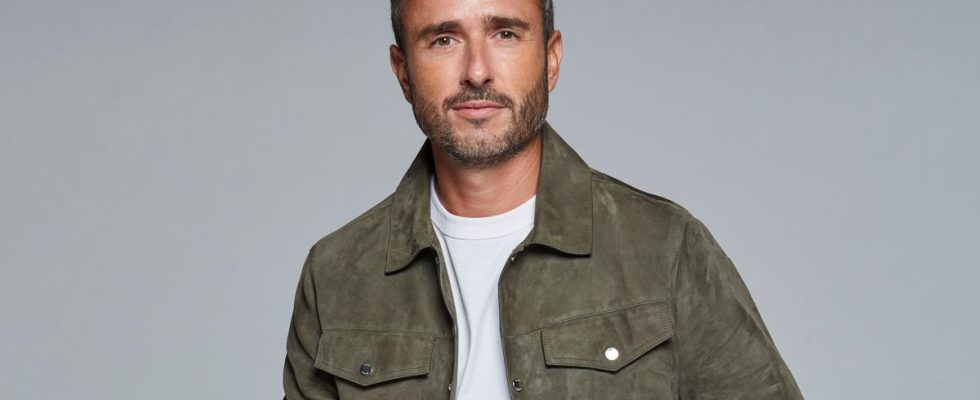Ten years already! In May, it will be a decade since marriage was opened to gay and lesbian couples in France. This Tuesday, TMC plunges back into the archives of the time with a number of 9 p.m. Media entitled “Ten years of marriage for all”. From the debates in Parliament to the first homo union celebrated in Montpellier, passing through the demonstrators opposing equal rights, the program traces this piece of history which marked the five-year term of François Hollande.
The former President of the Republic is also one of the speakers on the program, alongside the former UMP deputy Franck Riester, journalists Christophe Beaugrand and Caroline Fourest or even the singer Suzane. Julien Bellver, who is presenting this evening, explains to 20 minutes the way the show was built and evokes how he lived, as a gay and a journalist, this period when, in 2013, homophobic speech was released in the media landscape.
Devoting an issue of “21h Médias” to “marriage for all”, was it obvious?
When we organized our agenda, we realized that the law was celebrating its tenth anniversary this year and the subject imposed itself. As I say in the introduction to the show, it’s an important doc for me because I’m gay. There’s a bit of a militant side to it. It is intended both for the new generations, so that they understand that ten years ago, people fought for these equal rights, and for the older generations, so that they do not forget what it happened and the words that were used by some politicians still in office today. It was hard for a lot of people. We won the match, but it didn’t come without clashes or violence.
This sequence of “marriage for all” took place over many months, how did you sort through the archives and what editorial choices did you make?
The idea was to tell the law, how it was born in François Hollande’s campaign, how it was debated and then voted on in the Assembly… We wanted to be quite exhaustive, because it is the promise of the 9 p.m. Mediabut stories had to emerge.
That’s to say ?
One tells for example that of Franck Riester who was one of the only two UMP deputies favorable to the law. We interviewed the first couple from Montpellier, they are no longer together, but they get along very well. There is also the story of Louise, who was raised by two mothers. At the time, she had been auditioned in a parliamentary committee about homoparental adoption. Obviously, we had to talk about the violence, because there was a lot of it with the attacks in the street, the demonstration for all, etc. but we wanted to come back to the law in a mostly positive way and show that, ten years later, it was “All that for that”. French society fractured for a law which, ten years later, is no longer in doubt for anyone.
The archives of demonstrations against the marriage of homosexual couples are much more numerous than those of mobilizations in favor of the law. Is this the proof that the media treatment has been unbalanced?
There was an imbalance because the associations hostile to “marriage for all” (La manif pour tous, Civitas, etc.) were better organised. I think the media were surprised at the mobilization of the anti. Polls already indicated that a majority of French people were in favor of the law, so many people said to themselves that it was going to be passed without problem. The favorable French took a long time to organize themselves and go to counterbalance in the streets. We manifest more “against” something than “for”.
You also rebroadcast this famous sequence from the “Petit journal” in which a woman against the marriage of homosexual couples says “It’s against nature han”… Doesn’t that make you laugh reflect the fact that the opposition to the law has been underestimated?
We also had to laugh a little. It was very hard for the homosexual community ten years ago. Every weekend to take it in the head… It was in all the JT. There were some particularly difficult words to hear. I think The small newspaper did the job well at the time by making fun of these people and highlighting the disconnect between society and their ideas.
As a journalist and gay, how did you experience this period?
I experienced it badly. Looking back, I tell myself that I should have been more active. I was 30 years old, I was perhaps a bit young, but I should have gone more into the mobilizations in favor of “marriage for all”, to be visible, to oppose those who marched against our equality. Going back to the archive images, it’s a regret that I have.
Is that why you came out two years ago by posting a photo in which you appeared with your companion?
No way ! (laughs) This story is kind of funny because I haven’t really come out. At that time, everyone knew that I was gay, there was no mystery in my family, friends, professional environment… Perhaps the general public who saw me on TV did not know it, but I I posted this photo with my boyfriend quite spontaneously because I thought it was nice. I was surprised by all coverage in the media. I believe that Closer was the first to write about it. I received tons of messages telling me that it was great, thanking me, etc… So I told myself that it was all the better if it helped people and brought some visibility.

